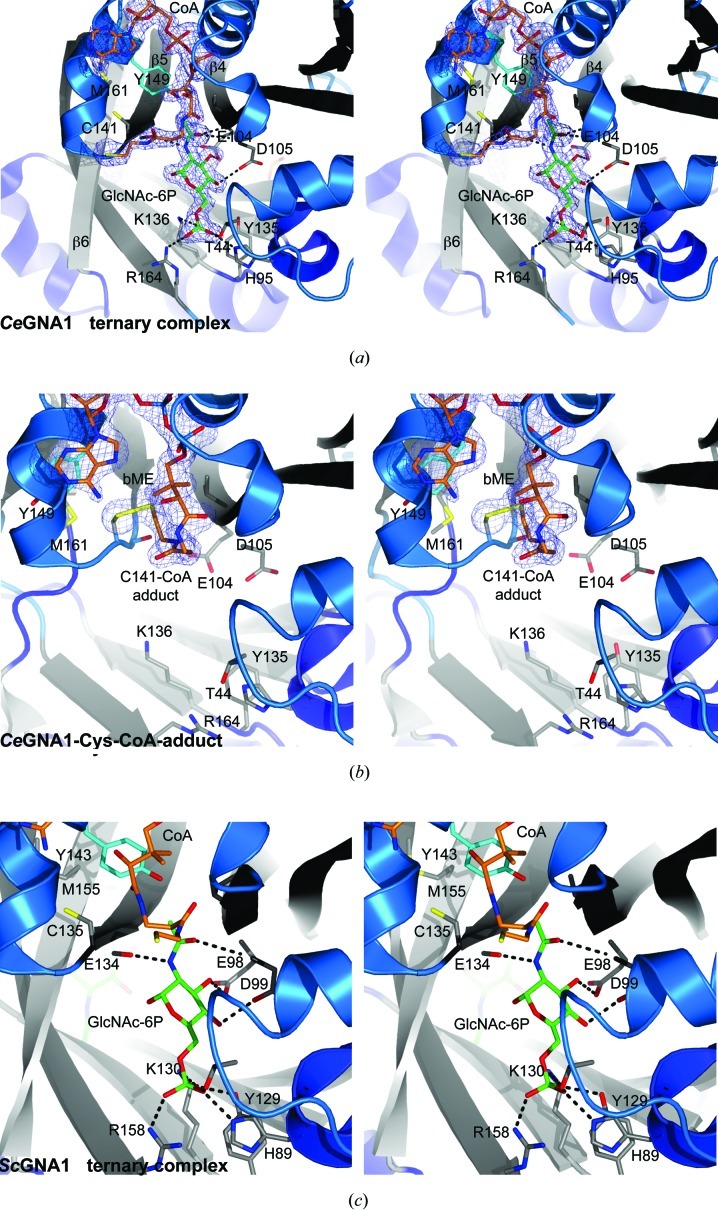Figure 2.
Stereo figure showing the structural dissimilarities of both obtained CeGNA1 complexes in comparison to ScGNA1. (a) Active site of one subunit of the ternary CeGNA1–CoA–GlcNAc-6P complex. Active-site residues and the products are labelled and displayed as sticks. OMIT 1.75 Å resolution |F o| − |F c|, ϕcalc electron density (dark blue) is shown for both products. Tyr149 points into the active site, while Cys141 is flipped out. (b) CeGNA1–Cys–CoA adduct showing the alternate conformations of Tyr149, Met161 and Cys141 compared with (a). OMIT 1.55 Å resolution |F o| − |F c|, ϕcalc electron density is shown for the product CoA and the disulfide bond to Cys141. Tyr149 lines the wall of the active site, while Cys141 points into the active site and is covalently linked to CoA. (c) ScGNA1 in the ternary complex (adopted from Peneff et al., 2001 ▶; PDB entry 1i1d). Tyr143, Cys135 and Met155 are in similar conformations as in the ternary CeGNA1 complex. The product GlcNAc-6P is hydrogen bonded to equivalent residues.

